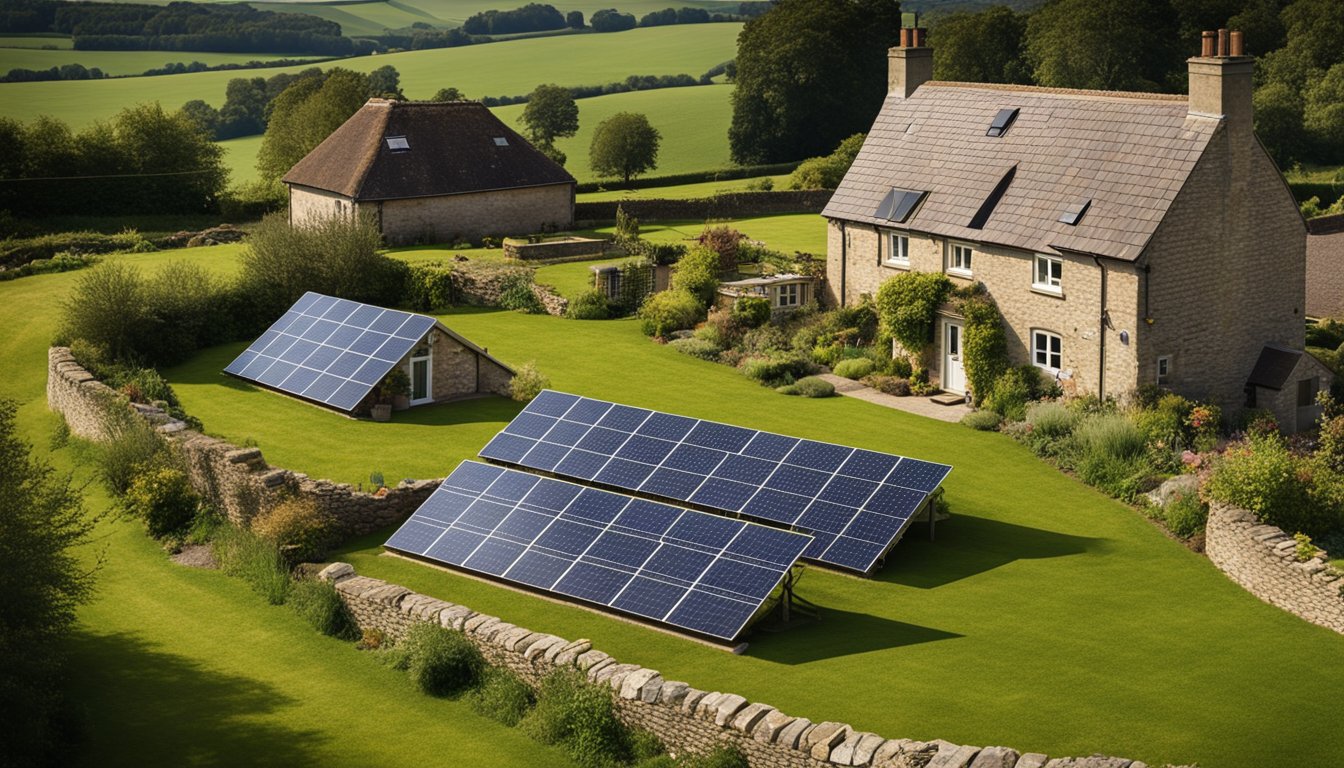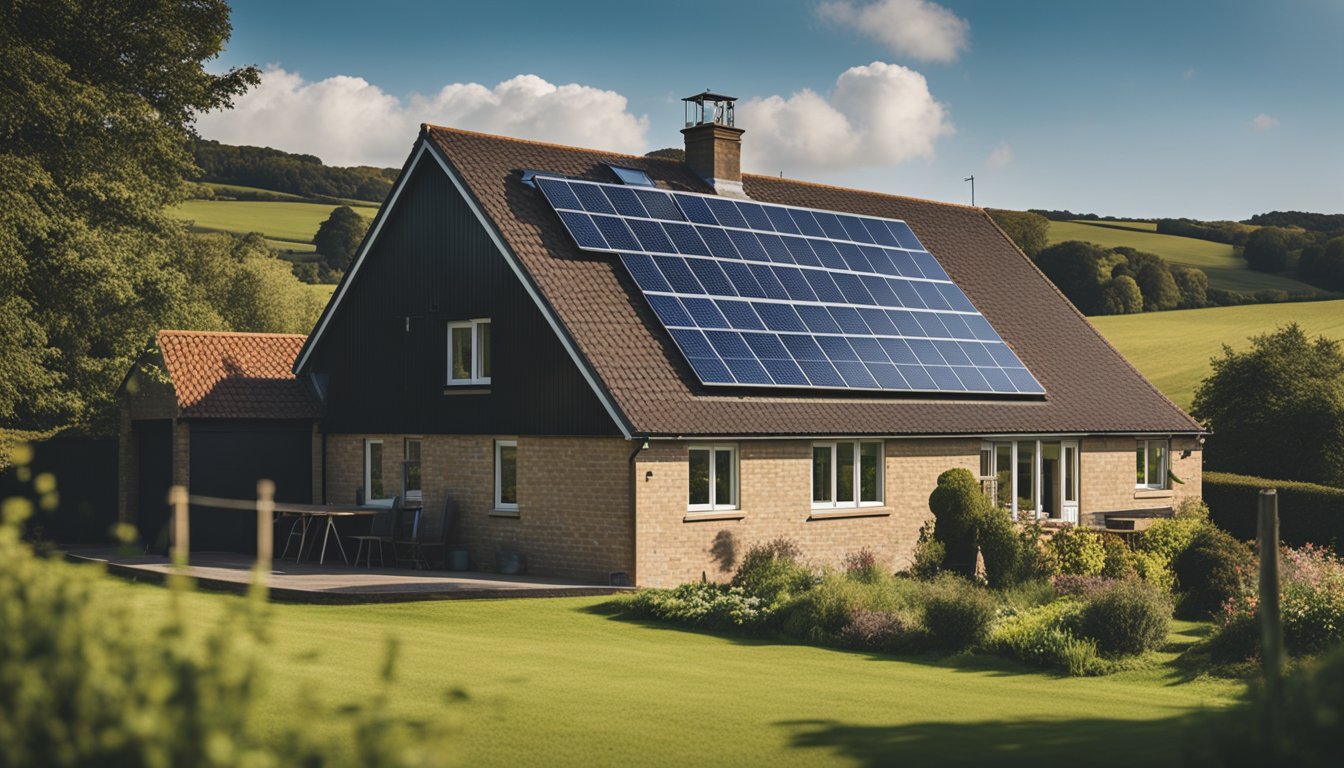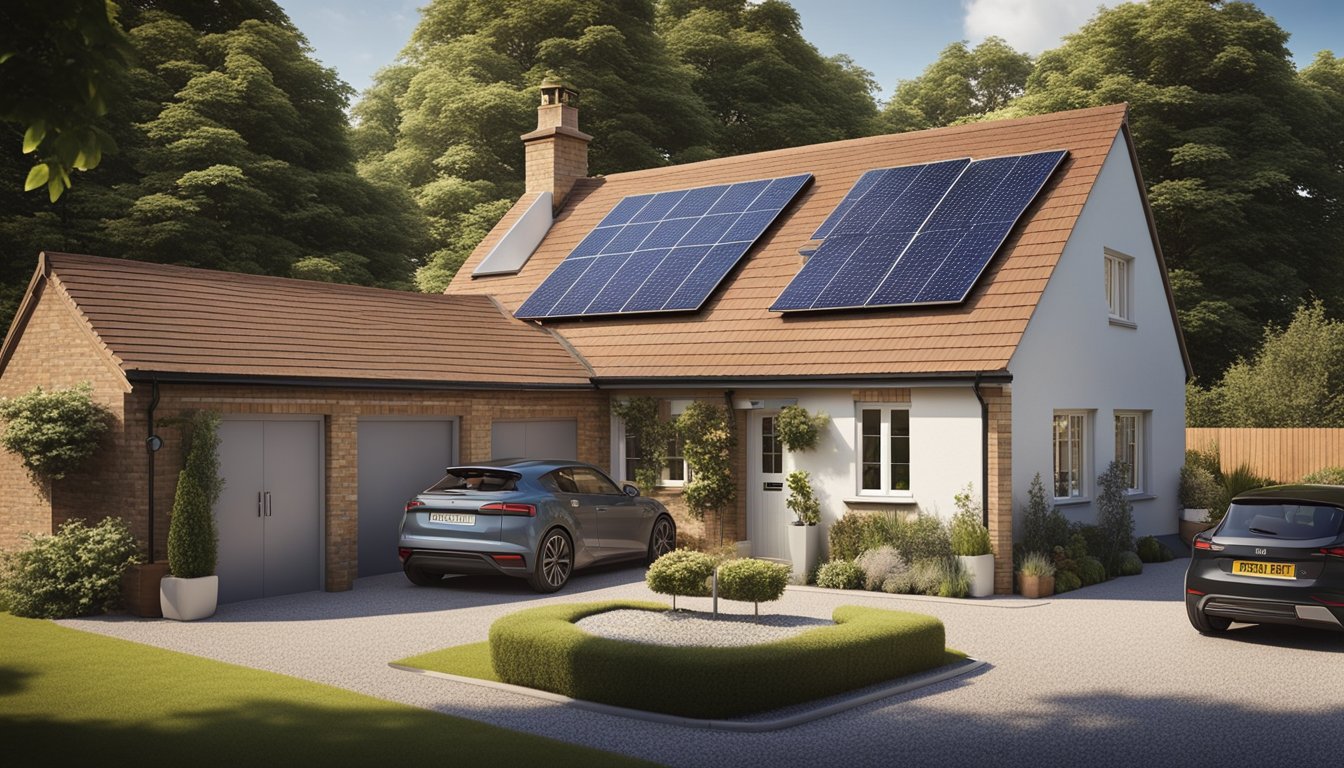Late updated: 31 Aug 2024 10:08
Written by: Oliver Bennett
Green Energy Solutions For Rural UK Homes: Sustainable Living Options
Switching to green energy is not just an urban trend; it's a lifeline for rural households in the UK. Our homes can significantly cut energy costs and reduce carbon footprints by embracing sustainable solutions. From renewable liquid gases like BioLPG to government schemes offering grants for energy efficiency, rural residents have a variety of tools at their disposal.

The journey toward a sustainable home, especially in rural areas, presents unique challenges. Many rural homes are off the gas grid and rely on outdated heating systems. Upgrading to energy-efficient alternatives can not only help in reducing fuel poverty but also make homes more comfortable and eco-friendly.
Government initiatives like the Home Upgrade Grant are stepping stones in making this transition easier. These grants aim to provide low-income households with energy-efficient measures, ensuring that the most vulnerable among us are not left behind.
Key Takeaways
- Switching to green energy cuts costs and reduces carbon footprints.
- Rural homes face unique challenges but have various energy solutions.
- Government grants aid energy efficiency and support low-income households.
Understanding Rural Energy Challenges in the UK

Rural communities in the UK face unique energy challenges, with heavy reliance on oil and gas for heating and significant impacts from energy poverty. These issues are crucial for understanding the broader context of transitioning to green energy solutions.
Dependency on Oil and Gas for Heating
Many rural households rely on oil and gas for their heating needs. Off the gas grid, these homes often face limited alternatives, making them more dependent on fossil fuels. This dependency leads to higher energy bills, especially during winter months. Furthermore, the cost volatility of oil and gas contributes to financial instability for these households.
Biofuels and e-fuels are potential alternatives, yet they require substantial infrastructure changes. Implementing heat pumps is another solution, but they may not be suitable for all homes due to the existing building stock. Therefore, developing efficient and accessible energy solutions remains a key priority for rural communities.
The Impact of Energy Poverty in Rural Communities
Energy poverty significantly impacts rural communities, with many households struggling to afford adequate heating. Fuel-poor households are particularly vulnerable, as they spend a higher percentage of their income on energy bills. The UK government's Homes Upgrades Grant aims to retrofit off-grid homes, addressing some of these issues.
Without access to affordable energy, residents face increased health risks, decreased living standards, and social isolation. Local power generation initiatives could offer economic benefits and improve energy efficiency. Nonetheless, achieving these goals requires targeted policies and incentives to support the most affected communities.
By addressing these challenges, we can work towards more sustainable and equitable energy solutions for rural UK homes.
Green Energy Solutions and Government Initiatives

The UK government has introduced various initiatives to help rural homeowners transition to green energy solutions. These efforts include promoting low carbon heating systems, improving insulation, and offering financial support.
Transitioning to Low Carbon Heating Systems
One of the major steps toward decarbonising homes involves the adoption of low carbon heating systems. Traditional boilers can be replaced by heat pumps, which are more energy-efficient and help reduce carbon emissions. By 2035, the goal is to phase out new gas boilers entirely. In support, the Boiler Upgrade Scheme offers incentives to install heat pumps, making this transition affordable. Investing in renewable technologies helps align with the government's commitment to reach net zero emissions by 2050.
Insulation and Energy Efficiency Measures
Enhanced insulation and other energy efficiency measures can significantly lower energy consumption and utility bills. Schemes like the Great British Insulation Scheme and the Energy Company Obligation require energy companies to fund installation procedures for improving home insulation. Effective insulation ensures that homes retain heat during winter and stay cool during summer, leading to considerable energy savings. Additionally, double glazing, draught-proofing, and loft insulation are crucial upgrades that can be implemented to increase energy efficiency.
Financial Support and Grants for Upgrades
Financial support is essential to encourage homeowners to invest in green energy solutions. The Green Homes Grant and Home Upgrade Grant help cover a significant portion of the costs associated with energy-efficient improvements. These grants target various upgrades, including new heating systems, insulation, and renewable energy installations. For social housing, the Social Housing Decarbonisation Fund provides the necessary funds to make large-scale improvements. Such financial aid empowers households to transition smoothly from traditional energy systems to greener alternatives without incurring prohibitive expenses.
To facilitate an effective transition, the government has committed to substantial investments and introduced comprehensive measures aimed at achieving energy efficiency and supporting the rural UK in upgrading to greener solutions.
Frequently Asked Questions
Green energy solutions are becoming increasingly necessary and practical for rural UK homes. Below, we address common inquiries regarding the integration, costs, benefits, and reliability of these renewable energy systems.
How can rural UK homes efficiently integrate renewable energy solutions?
We can effectively incorporate renewable energy solutions through the deployment of solar panels, wind turbines, and biomass heating systems. These technologies can be tailored to suit the specific needs and constraints of rural properties. Proper site assessment and planning ensure optimum efficiency and minimal environmental impact.
What are the initial and long-term costs associated with installing green energy systems in rural UK properties?
Initial costs for installation can vary widely based on the technology selected. For example, solar panels typically require a significant upfront investment, while biomass systems can be relatively more economical initially. Long-term savings on energy bills and potential government incentives can help offset these initial expenditures, making them financially viable in the long run.
Which is more advantageous for rural UK homes: solar energy systems or wind turbines?
The choice between solar energy systems and wind turbines depends on specific local conditions. Solar panels are often more suitable in areas with high sunlight exposure. Wind turbines can be more effective in regions with consistent wind patterns. Evaluating local weather conditions, land availability, and installation costs is crucial for making the best choice.
How does the UK government support rural homeowners in the transition to renewable energy sources?
The UK government offers several incentives and grant programmes to aid rural homeowners in adopting renewable energy solutions. These include the Green Homes Grant, Feed-in Tariffs, and Renewable Heat Incentive (RHI). These schemes can significantly reduce the financial burden associated with transitioning to greener energy options.
Can renewable energy sources provide a reliable supply of energy for remote rural areas in the UK?
Renewable energy sources can indeed provide a reliable energy supply when appropriately implemented. Combining different technologies, like solar with battery storage or wind with backup generators, can enhance reliability. Advances in smart grid technology also allow for better management and distribution of energy in remote locations.
What are the environmental benefits of adopting green energy solutions for rural homes in the UK?
Using renewable energy reduces greenhouse gas emissions and reliance on fossil fuels, contributing to mitigating climate change. Additionally, renewable energy systems often have a lower impact on local ecosystems compared to traditional energy sources, promoting a cleaner and healthier environment for rural communities.
